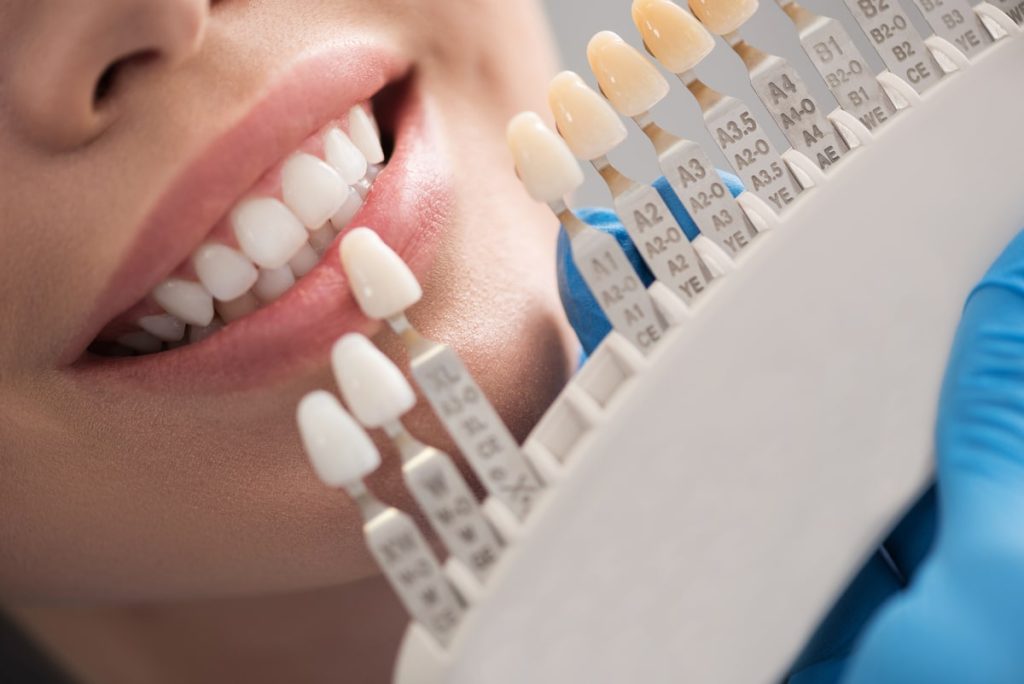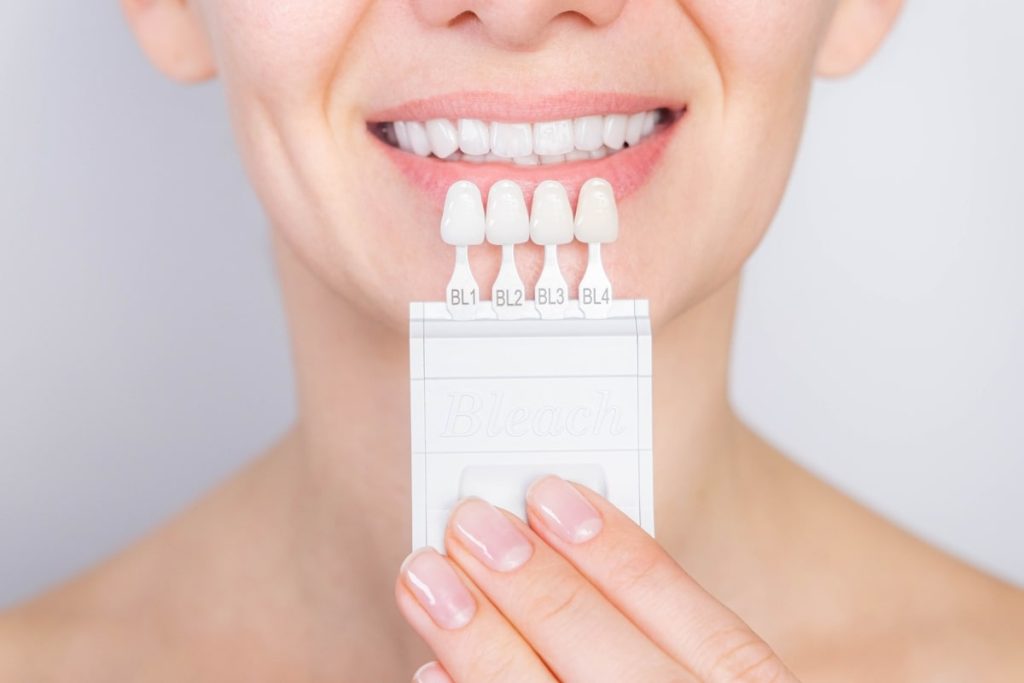July 19, 2024
Dr. Andres de Cardenas
All-on-4 dental implants, cosmetic bonding, Cosmetic Dental Care Services, cosmetic dentist Miami, Cosmetic Dentist Whitening, Cosmetic Dentistry, Daily Health Tips, dental care, Dental Care Tips, Dental Cleaning Appointment, Dental Implant Procedure, dental solutions, Dentist Appointment, family dental Care dentist, Family Dentist, FL, healthy teeth, Natural teeth whitening, Oral Cancer, Oral Care, professional denstists, Smile Makeover, Teeth Alignment, Teeth discoloration, Teeth Whitening, teeth whitening sensitive teeth, The Miami Cosmetic Dentist
Family Dental Care Miami | Miami Cosmetic Dentist > Blog > dental care > Veneers Vs Implants: What Are The Risks And Benefits?
Veneers Vs Implants: What Are The Risks And Benefits?

When it comes to cosmetic dentistry, two of the most popular procedures for enhancing smiles are dental veneers and implants. Both options offer a transformation that can boost confidence and improve dental health, but they serve different purposes and come with their own sets of risks and benefits.
Here’s what you need to know to make an informed decision between veneers and implants.
 What Are Veneers?
What Are Veneers?
Dental veneers are thin shells of porcelain or composite resin that are custom-made to fit over the front surface of your teeth. They are primarily used to improve the appearance of teeth by correcting issues such as discoloration, chips, unevenness, or gaps.
They are primarily used for cosmetic purposes, to fix issues such as discoloration, chipped or broken teeth, gaps between teeth, or misaligned teeth. The process of getting veneers usually involves the following steps:
- Consultation: Your dentist will examine your teeth to ensure dental veneers are suitable for you.
- Preparation: The dentist will remove about 0.5 millimeters of enamel from your tooth’s surface. Next, the dentist will make a model or impression of your tooth.
- Veneer Creation: The dentist will send the model to a dental laboratory, which constructs your veneer. This usually takes 2-4 weeks.
- Bonding: The dentist will place the veneer on your tooth to examine its fit and color, followed by a series of modifications. Once properly adjusted, your tooth is cleaned, polished, and etched for the veneer application. The veneer is then applied using a special cement, which is activated by a light source to quickly harden.
What Are Dental Implants?
Dental implants are a more invasive treatment used to replace missing teeth. They consist of a titanium post that is surgically inserted into the jawbone, a connector called an abutment, and a crown that mimics the appearance of a natural tooth.
How Does Dental Implants Work?
Dental implants involve a surgical procedure where a metal post mimics the root of a missing tooth. Over time, this post integrates with the jawbone, providing a stable foundation for an artificial tooth. Unlike porcelain veneers, which are applied to the surface of existing teeth, dental implants replace the entire structure of a missing tooth, from root to crown.
One of the most compelling advantages of dental implants over veneers and other dental procedures is their lifespan. These implants can last a lifetime with proper care, diverging significantly from the finite existence of porcelain veneers and other dental care approaches.
This longevity and their ability to promote oral health and mimic natural teeth make dental implants a robust solution for those looking to replace missing teeth effectively.
Risks And Benefits: Implants And Veneers
Venturing into the world of cosmetic dentistry to enhance your smile brings you face-to-face with two leading solutions: implants and veneers. Each carries its own set of pros and cons, framed by effectiveness, cost, and impact on oral health. Here are some of the risks and benefits of Dental Implants and. veneers
- Dental Implants
They are beneficial because they can replace missing teeth with artificial teeth that feel and function like natural ones. They also preserve the bone and prevent adjacent teeth from shifting. However, implants require surgery, which introduces the risks of infection, inflammation, and the possibility of implant failure.
- Veneer
The advantages are chiefly aesthetic, offering a makeover for existing teeth that are discolored, chipped, or misaligned. Porcelain veneers promise durability and corrosion resistance, closely mimicking the reflective properties of natural teeth.
However, the application process for veneers may involve the removal of a tiny portion of the tooth’s enamel, making the procedure irreversible and possibly leading to tooth decay under or around the veneer.
Cons Of Dental Implants And Veneers
- While less invasive than implants, veneers require meticulous dental care post-application to avoid damage.
- They also don’t solve underlying oral health problems like missing roots or tooth decay.
- Implants demand a healthy jawbone for installation, a process that’s both time-consuming and more costly upfront than dental veneers.
Veneers Vs Implants: The Head-to-Head Comparison
Choosing between veneers and implants depends largely on your specific dental needs and desired outcomes.
- Dental Needs and Goals: Dental implants offer a solution for restoring function and aesthetics to lost or damaged teeth. Veneers work best for cosmetic improvements, such as correcting shape, color, or minor misalignments without altering the overall structure.
- Overall Health and Dental Hygiene: A strong jawline and healthy gums are prerequisites for dental implants, making them not suitable for everyone. Veneers require healthy teeth for application, but the criteria are generally less stringent compared to implants.
- Lifespan And Maintenance: Dental implants with proper dental hygiene generally last longer than veneers, often a lifetime. Veneers usually need replacing every 10 to 15 years.
- Cost And Dental Insurance: Dental implants are typically more expensive upfront and require more dental visits. However, their durability might offer long-term savings. Veneers are generally more affordable, though porcelain veneers can be pricey. Coverage varies widely with dental insurance.
- Impact on Natural Teeth: Implants do not require alteration to surrounding teeth, preserving more of your natural tooth structure. Veneers, though minimally invasive, involve reshaping the existing tooth surface to fit the veneer properly.
 Making the Right Choice
Making the Right Choice
Implants might be the better route if you’re active or have habits that might compromise the integrity of veneers. On the other hand, if your needs are predominantly aesthetic and you don’t have missing teeth, veneers could provide the transformation you desire.
Cost will always be an essential factor in your choice. Veneers are generally less expensive than implants, but consider their longevity and the potential future costs associated with replacements.
Patients interested in implants will need sufficient bone density for successful implantation, potentially ruling out the procedure for some without additional bone grafting. Veneers require generally healthy teeth as they attach to the tooth’s surface.
Whether you opt for veneers or implants, it’s important to maintain regular dental check-ups and practice good oral hygiene. Both procedures can significantly improve the quality of your life and allow you to smile with confidence. Carefully weigh the risks and benefits, and consider your long-term dental health when making your decision. The right choice is one that not only improves your smile but also your overall well-being.
It’s vital to consult with a dental professional who can provide a personalized recommendation based on your dental health, cosmetic goals, and unique circumstances.
Get the Smile you Deserve!
Seek out the best cosmetic dentist, Dr. Andres de Cardenas, and call us today!
Call Dr. Andres de Cardenas today at 305-251-3334!
Cosmetic dentistry offers many options for people who are unhappy with the appearance of their smile. If you’re one of these people, we encourage you to seek out the veneers, cosmetic dentistry in Miami.
Get In Touch With Us
Recent Posts
- Bright Smiles, Brighter Futures: Why Cosmetic Dentist Whitening Is Worth It
- Safeguard Your Smile: Family Dental Care Dentist Debunks DIY Dentistry Tips!
- Dental Implant FAQs: What to Know About the Recovery Process
- The Health Benefits Of Cosmetic Dental Care Services: Beyond Vanity
- The Ultimate Cosmetic Dental Checklist For Miami, FL Residents
Related articles
July 5, 2024
Dr. Andres de Cardenas
All-on-4 dental implants, cosmetic bonding, Cosmetic Dental Care Services, cosmetic dentist Miami, Cosmetic Dentistry, Daily Health Tips, dental care, Dental Care Tips, Dental Cleaning Appointment, Dental Implant Procedure, dental implant recovery, dental implants, dental solutions, Dentist Appointment, family dental Care dentist, Family Dentist, FL, healthy teeth, Oral Cancer, Oral Care, professional denstists, Smile Makeover, Teeth Alignment, Teeth discoloration, Teeth Whitening, The Miami Cosmetic Dentist
Safeguard Your Smile: Family Dental Care Dentist Debunks DIY Dentistry Tips!
June 21, 2024
Dr. Andres de Cardenas
All-on-4 dental implants, cosmetic bonding, Cosmetic Dental Care Services, cosmetic dentist Miami, Cosmetic Dentistry, Daily Health Tips, dental care, Dental Care Tips, Dental Cleaning Appointment, Dental Implant Procedure, dental implant recovery, dental implants, dental solutions, Dentist Appointment, Family Dentist, FL, healthy teeth, Oral Cancer, Oral Care, professional denstists, Smile Makeover, Teeth Alignment, Teeth discoloration, Teeth Whitening, The Miami Cosmetic Dentist


